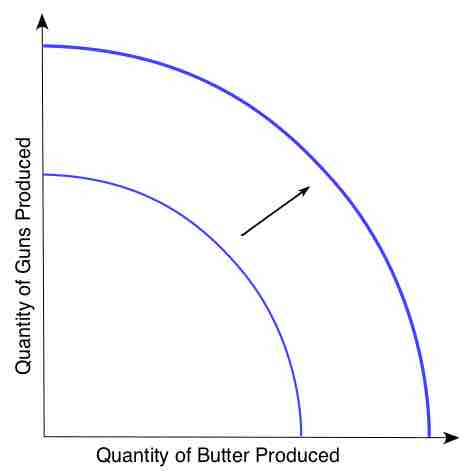Technological Change
In economics, growth is defined as the increase in output per capita of a country over a long period of time. One primary factor that influences the growth of an economy is technological change. Technological change is a term used to describe the change in a set of feasible production possibilities. Technological improvement has the ability to increase the amount of output an economy can produce, even if the level of inputs remains constant .

Technological Change
Technological change causes the production possibility frontier to shift outward and initiate economic growth.
Technology and Long-Run Growth
Technology is defined as the making, modification, usage, and knowledge of tools, machines, techniques, systems, and methods of organization in order to solve a problem, improve a preexisting solution to a problem, or achieve a goal . In economics, improvements in technology have helped develop more advanced economies (for example, today's global economy).
ENIAC
ENIAC, the first general purpose computer, was a technological advancement that affected both productivity and the types of outputs that could be produced.
In a developing country, the government works to ensure that the technologies, skills, knowledge, and methods of manufacturing are tested and developed so that they can be passed on to a broader audience. The expansion and sharing of technology leads to the further development of goods, processes, applications, materials, and services. All of these areas are critical to the advancement of an economy in the long-run.
The field of economics is constantly evolving as is the production of goods and services. In order to advance and continue to grow all markets need to make use of new technology to stay competitive. In the case of long-run economic growth, using the most advanced technology provides a market with a competitive advantage. Advances in technology creates an increased level of output with the same inputs, which improves productivity.